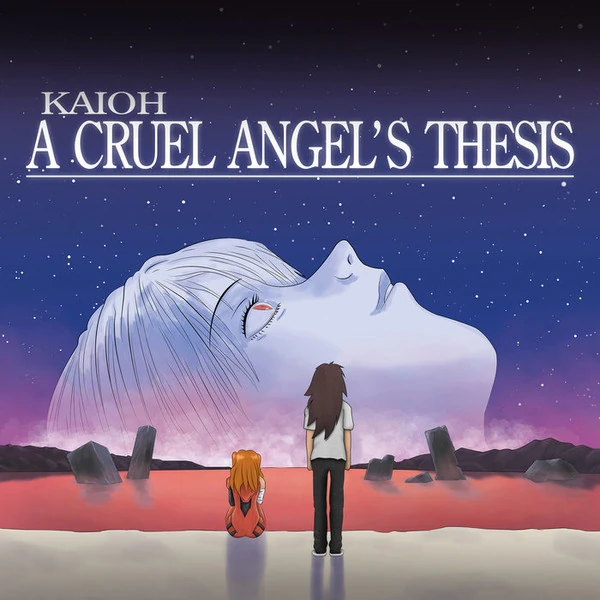“Zankoku na Tenshi no Thesis” (残酷な天使のテーゼ), known in English as “A Cruel Angel’s Thesis,” is the iconic opening theme song for the legendary 1995 anime series Neon Genesis Evangelion. It’s not just an anime song; it’s a cultural phenomenon and one of the most recognizable and beloved pieces of music in Japanese popular culture.
Here’s a deep dive into what makes it so special:
1. Artist and Creators
- Vocals: Yoko Takahashi (高橋洋子) – Her powerful and distinctive voice is inseparable from the song’s identity.
- Lyrics: Neko Oikawa (及川眠子)
- Composition: Hidetoshi Sato (佐藤英敏)
- Arrangement: Toshiyuki Ohmori (大森俊之)
2. Musicality and Style
- Genre: Primarily J-Pop with strong synth-pop and orchestral elements.
- Tempo: Upbeat and driving, creating a sense of energy and urgency.
- Instrumentation: Features prominent synthesizers, a strong bassline, dynamic drums, and often includes brass and string sections that give it a grand, almost symphonic feel.
- Opening Hook: The song is instantly recognizable from its very first notes – a distinctive synth chord followed by a driving hi-hat rhythm that pulls the listener in immediately.
- Catchiness: It possesses an incredibly memorable melody and a chorus that’s easy to sing along to, even for those who don’t understand Japanese.
3. Lyrical Themes and Connection to Evangelion
- The lyrics, though sometimes abstract, are widely interpreted as directly addressing Shinji Ikari, the protagonist of Evangelion.
- Themes include:
- Destiny and Responsibility: “Become a legend,” “embrace your destiny,” “fly high with the cruel angel’s thesis.” These lines directly relate to Shinji being forced to pilot the Evangelion.
- Coming of Age: The song speaks to the burden of adulthood and the choices one must make.
- Human Connection: “Hold the boy gently and carry him to the morning, for a cruel angel’s thesis waits at the window.” This suggests a desire for protection and guidance.
- Hope vs. Despair: While the music is energetic, the “cruel angel” imagery and the concept of a “thesis” (a proposition to be defended or proved) hint at the deeper, often dark philosophical and psychological themes of the anime.
- Irony: The highly energetic and almost hopeful tone of the music often stands in stark contrast to the psychological torment, existential dread, and apocalyptic scenarios depicted in Neon Genesis Evangelion. This juxtaposition is part of its genius and enduring appeal.
4. Cultural Impact and Legacy
- Ubiquitous in Japan: “A Cruel Angel’s Thesis” is arguably the most famous anime theme song of all time in Japan.
- Karaoke King: For years, it has consistently topped karaoke charts across Japan, becoming a staple at karaoke boxes and events. It even holds records for being the longest-running song on certain karaoke charts.
- Commercial Success: It’s one of the best-selling anime singles in history, continuing to sell and stream decades after its release.
- Global Recognition: Even outside Japan, it’s instantly recognizable to anime fans worldwide and has transcended fandom to become a pop culture touchstone.
- Memes and Parodies: The song and its iconic opening animation (featuring geometric shapes, character profiles, and the rapid-fire succession of scenes) are frequently parodied and referenced in internet memes, especially related to Shinji’s reluctance to pilot the Eva (“Get in the robot, Shinji!”).
- Enduring Popularity: Its appeal hasn’t diminished. It’s frequently covered by other artists, featured in live concerts, video games, and commercials, and remains a perennial favorite at anime conventions and events.
In essence, “A Cruel Angel’s Thesis” is more than just a catchy tune. It’s a perfectly crafted piece of J-Pop that encapsulates the energy, mystery, and philosophical depth of Neon Genesis Evangelion, embedding itself deeply into the hearts of fans and the broader cultural consciousness for generations.
